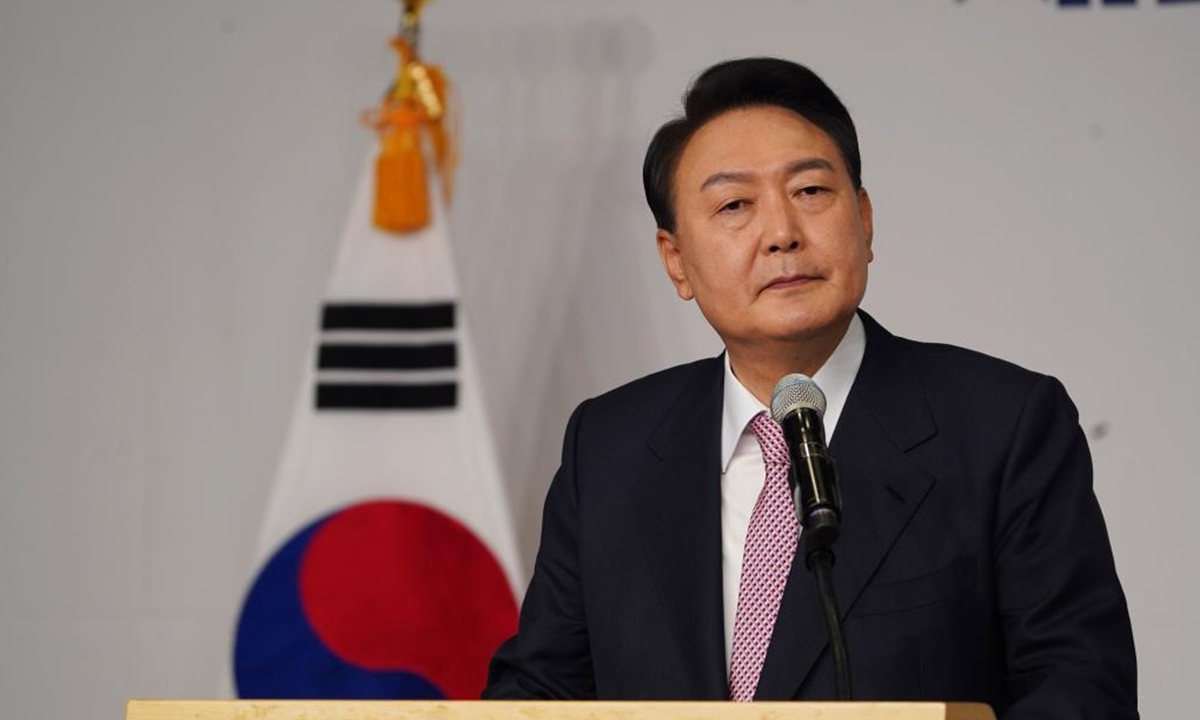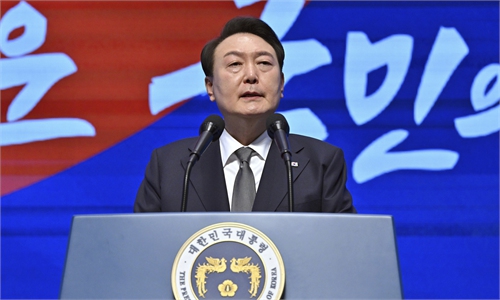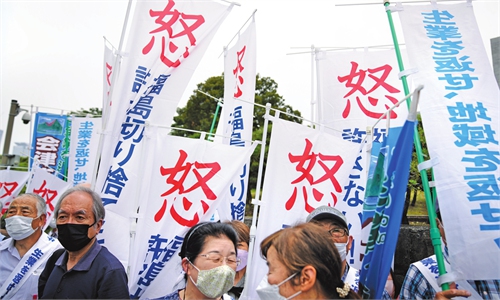
Yoon Suk-yeol Photo: Xinhua
The historical issues between South Korea and Japan have always been the crux of their relationship. In order to form a united front with Tokyo and Seoul against its rivals, Washington has repeatedly pressured South Korea to compromise with Japan. This has become an important external factor preventing the historical issues between the two countries from being addressed, according to observers.As a step toward mending ties with Tokyo, Seoul on Monday announced a plan to compensate Koreans who performed forced labor during Japan's colonial rule that does not require Japanese companies to contribute to the reparations, which has triggered anger from some of its domestic and political audiences.
Washington is pleased to see it happen. US President Joe Biden hailed the move as "a groundbreaking new chapter of cooperation and partnership between two of the United States' closest allies."
The decision, as well as other efforts by the government of Yoon Suk-yeol, who is seen as a pro-US leader, to improve relations with Japan since taking office, are to a large extent due to Washington's strong pressure. As a result, South Korea had to make decisions that damage its own image and even its national interests as well as disappoint its citizens. Washington hopes that South Korea can reconcile with Japan, so that they can join the US in containing China in the Asia-Pacific region, with South Korea playing the role of a pawn.
The sacrificing of other countries' interests to meet its own security and economic ones is a routine practice of Washington. The US has a long history of betraying other countries, including its closest allies. Its security concept is an absolute one, which is to satisfy the US' own security at the expense of other countries'. This is a morbid security concept that can trigger the regional disorder, division, and even war, and all regional parties must be vigilant.
Temporary easing of tensions between Tokyo and Seoul may be achieved under US pressure, but the diplomacy of both Japan and South Korea are heavily influenced by domestic politics. Especially in South Korea, where sentiments against Japan and the US are strong. This raises questions as to whether the current easing of tensions between Japan and South Korea is sustainable.
Japan on Monday denied the fact of forced labor during World War II at the UN Human Rights Council, according to the Chinese version of the Yonhap news agency.
Japan's militarism has resulted in enormous damage to regional countries, including China and South Korea, and this pain still lingers. Japan has always lacked genuine self-reflection on historical issues.
As Chinese foreign ministry spokesperson Mao Ning said on Monday that "Forced recruitment and enslavement of laborers is a grave crime against humanitarian law committed by the Japanese militarism during its aggression and colonial rule against the people of Asian countries, including China and the ROK. The facts are backed by ironclad evidence and shall not be denied or altered." Japan should take history as a mirror and should not add new suffering to regional countries while their old wounds have not been healed.
In the face of opposition from relevant countries including South Korea, Japan had promised to take follow-up measures to explain the historical facts of forced labor to the world. However, it turns out to be merely lip service. Japan's unreliable behavior has heavily hit its credibility among regional countries and even in the international community.
Apart from that, Tokyo also blindly follows the US' suit in creating regional instability. Facing history and reflecting on its guilt is a prerequisite for Japan to achieve self-redemption and return to the international community in the post-WWII era. Incorrect historical perceptions now pervade Japanese society. The Japanese government also constantly emphasizes the threats from its neighbors, as a pretext to significantly increase military spending, strengthen military forces, and seek a breakthrough from its pacifist constitution, rushing toward the path of military expansion.
Denying its aggressive history and glorifying militarism not only prevents Japan from achieving true historical reconciliation with Asian countries, but also risks repeating its past mistakes and bringing new disasters to Asian countries as well as the Japanese people.


